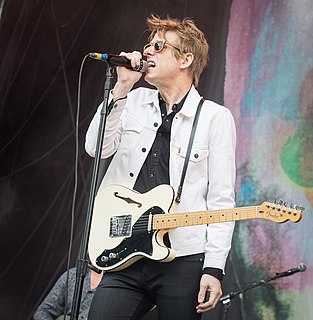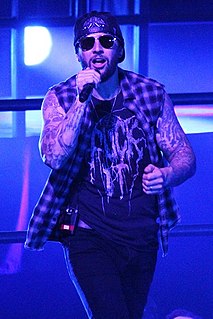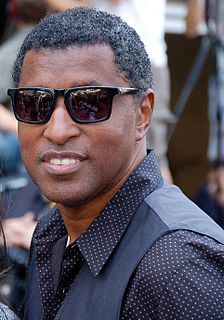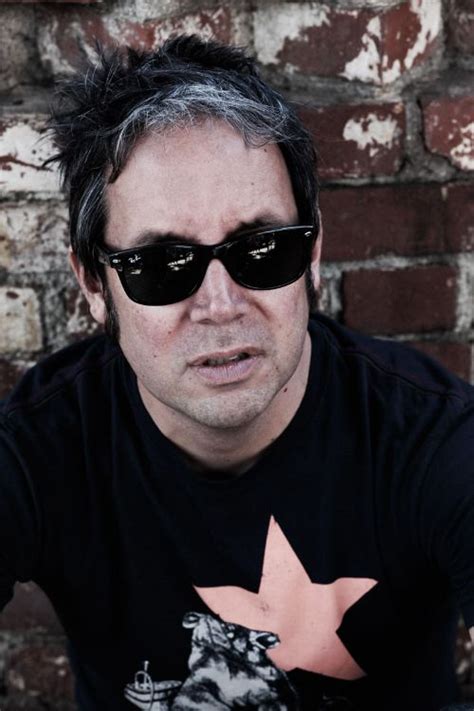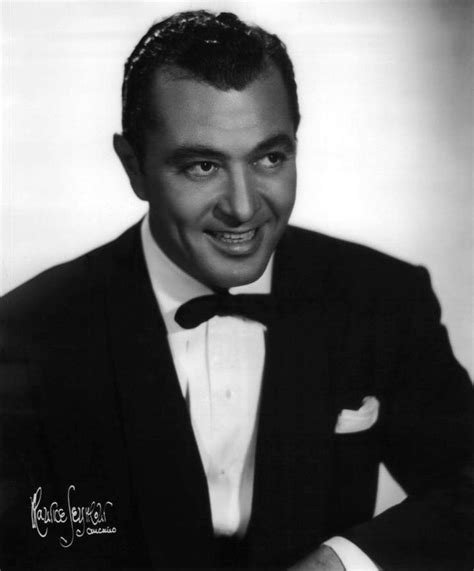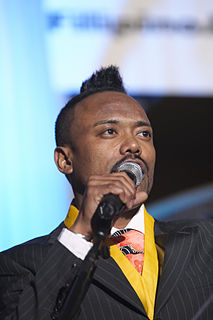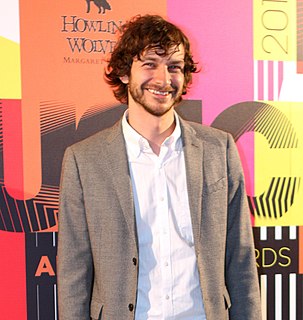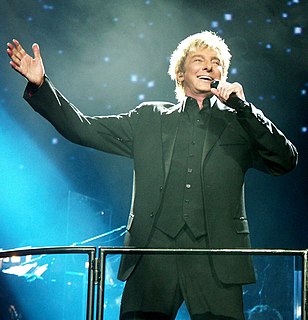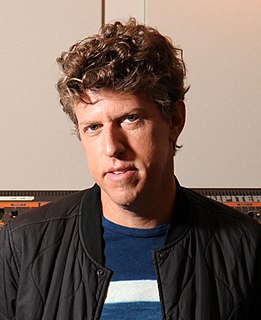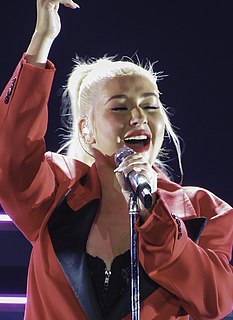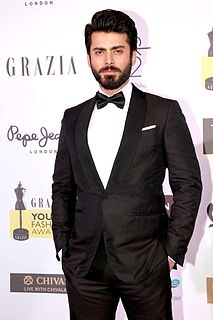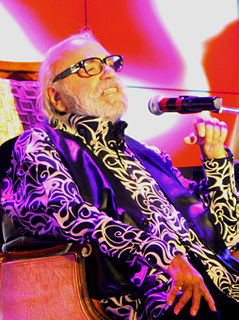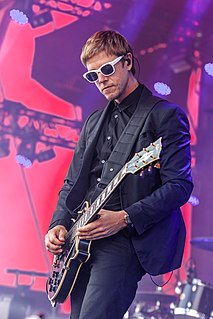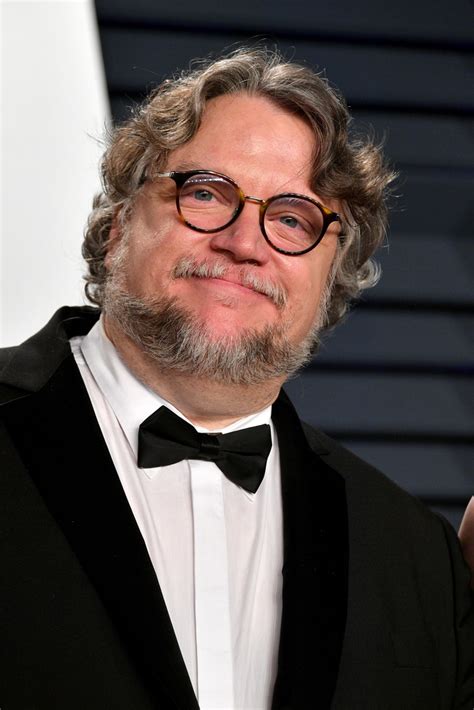Top 90 Vocalist Quotes & Sayings - Page 2
Explore popular Vocalist quotes.
Last updated on April 19, 2025.
It's one thing having a great song, but I think for me if you take it to the next level... say you had a guitar and a vocal, and the song was amazing but the vocalist wasn't that great and it just was a guitar and vocal acoustic track, switching that to something like an amazing voice singing the exact same song with the instrumentation being really nice and lush or unique in some way and interesting and diverse... I think it's all about the instrumentation and textures in the sound.
There's always only been three of us [drummer Joey Shuffield, vocalist, bassist and keyboardist Tony Scalzo and myself], but when we first started we didn't have anybody augmenting the band, so everything had to be kinda to the point anyway. We did that record and toured a while on that, but I just got sick of playing it every night. It felt like doing push-ups to me.
When I first started, I wrote some songs with Linda Perry. She's so instrumental in a lot of artist's lives, listening to you and then helping you write songs that are you, that bring the most of what you are out, whereas a lot of producers might put their stamp on you. I gained confidence because I'm less of a straight-up, traditional vocalist.
'Somebody That I Used to Know,' like a lot of the record, was a bit of a struggle to finish. It was written fairly quickly - I wrote it in November 2010 - but it took six months to find Kimbra and really realize she was the right vocalist to make the female part come to life. There were constant hurdles.
Van Morrison is probably, at this point in time, my biggest influence as a vocalist. When we were making our last album I had a vinyl copy of 'Veedon Fleece' in the vocal booth in front of me, in the dorky sense. I think there were candles around, which is really tacky, but hey, I needed to channel Van the Man!
I think if Unchained Melody does what I think it can do, I think there is an audience out there that would heave a sigh of relief, that finally there is a melody and orchestration, production and a vocalist that is giving them a song that they can just listen to... and not be annoyed by the vocal acrobatics that vocalists seem to think is impressive.
When it's open and honest, that's when the real nature of who you are as a vocalist or as a performer, all of that stuff can finally start to become what it's supposed to be. Like a settling into yourself. It's not even a musical thing, it's a whole mindset, a whole acceptance of who you were supposed to be. Life sounds good
During college, I didn't really have an interest in what I was studying. It was during college that I first stumbled into forming an underground band where I was the lead vocalist. I had always had an ear for music, but nothing more than that. And that good ear of mine led me to learn and play a lot of instruments while in college.
We've got the slowest 311 song ever, called 'Solar Flare,' which is a scathing political rap that [vocalist] S.A. [Martinez] puts over a really slow, heavy thing, And then there's also a really fast one called 'It's Getting OK Now,' which is [guitarist] Tim Mahoney channeling Dimebag Darrell [Abbott of Pantera].
When it's open and honest, that's when the real nature of who you are as a vocalist or as a performer, all of that stuff can finally start to become what it's supposed to be. Like a settling into yourself. It's not even a musical thing, it's a whole mindset, a whole acceptance of who you were supposed to be. Life sounds good.
I've always created solo work. When I first came to New York I was working in a few different areas; I was working as a drummer, a vocalist, an actor, and a dancer. I had gotten picked up more on the music side and that sort of went, and that's where I found my community in New York and that's the path that I went down.
Punk-rock gave music back to people. For a long time, when I was very young, I went to go see arena rock bands. I was 16 and it was all I could get in to see, legally. And I saw Led Zeppelin and Ted Nugent and Van Halen and all that. Me and [Minor Threat and Fugazi vocalist] Ian MacKaye would go to these concerts, and it was fun.
